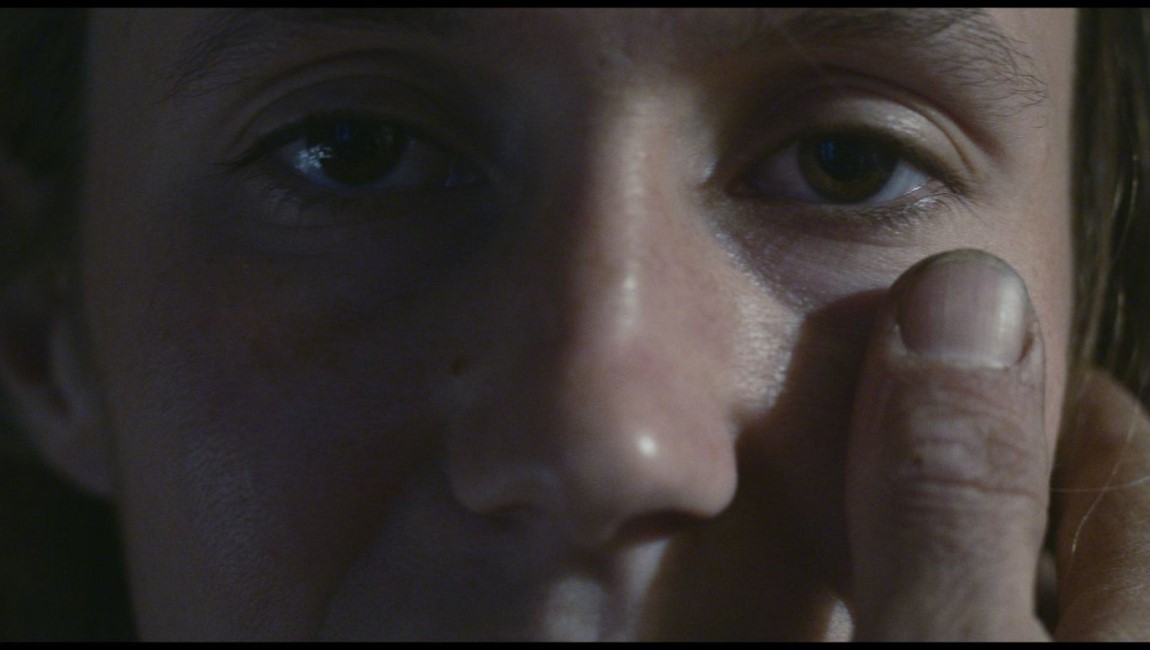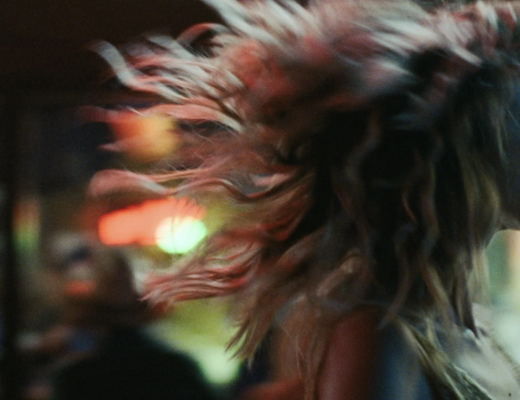Slow cinema miserabilism — right up there with elevated horror and anything written by Steven Knight (Serenity gloriously excepted) — is among the most irksome modes of filmmaking from the past half a decade, and has become a frustratingly pervasive festival circuit mainstay. By and large, films that fall under this umbrella tend to be fungible products — anonymous documents constructed of signposts for built-in audiences to spot and rain down empty praise upon accordingly. Of course, slow cinema has birthed some of the millennium’s most essential cinematic voices, but the vast influence cast by such luminaries — and the very serious and programmatic nature of international film festival slates — means waves of ill-equipped directors and their vapid aping have increasingly made a sport of cribbing superficial texture while porting over nothing of their touchstones’ substance.
It’s always a welcome surprise, then, to come across something like Bianca Lucas’ Love Dog. The logline is simple: John (John Dicks, in his debut) has returned to his hometown after the death of his girlfriend. It seems he has no real plans other than to be here and not be there, and articulates no clear designs throughout the film either. Rather, his existence over these weeks (or perhaps months; time is slippery here) is one predicated on distraction and avoidance. He’s a man obviously suffocating in grief, but he refuses to let it touch him: there’s a centerpiece scene of absolutely crushing emotional negation, wherein even the briefest intimacy — a hand resting on the titular dog’s paw while lying on the floor together — cracks a fault line through his placid façade. Instead, he mostly gets drunk and cycles through a sea of strangers on Chatroulette, an attempt to cast himself out of his own battered psyche and into the twisted sideshow of Internet “connection.”
That synopsis isn’t an uncommon one, especially in the world of low-budget indie cinema, but Lucas, who was trained at the Bela Tarr-directed Sarajevo Film Academy’s Film Factory, is too savvy to trade in cheap emotionalism or a bland redemption tale. The director pushes slow cinema’s observational quality even further toward the documentary form, locating John within an empty home and allowing his presence, his fractured interiority, to spill out, filling this space with his own hauntings. Lucas shoots much of the film in tight close-up, often in profile, littering in plenty of over-the-shoulder shots while John is in motion, while elsewhere framing him within doorways or centering him in open, empty rooms. John moves between dangerous energy and controlled resignation, at any moment seemingly see-sawing between recovery and surrender, the viewer fixed as an immediate voyeur to his polarities of mood. It can often feel as if the entire frame becomes the man, the world, too: radio snippets alluding to Covid (though not by name) barely register, and certainly hold no threat. But it’s when John isn’t alone that Love Dog lands some of its most moving moments. Acting as a counterpoint to his anonymous Internet engagement, John is sometimes almost cast as documentarian, delivered in a few standout sequences where he ingratiates himself into the hopes and pasts of strangers (and friends) he encounters — most notably, a young woman who wants to appear on The Voice — a respite from suffering’s isolating forces.
It’s in these details that Lucas’ impressive feature moves beyond the bounds of generically dire arthouse fare. John isn’t a canvas upon which the director paints any empty pretensions, but a character vibrating with wounded humanity. Lucas understands how grief can be an anchor, and examines what it can look like when one moored in this way begins to fold in on themself. Information is patiently doled out, often as a direct reflection of John’s moments of slippage: even the flashbacks, which are brief and oblique, lack any diegetic sound, a partial intrusion on a mind alternately craving and willing itself against their presence. Love Dog doesn’t quite stick the landing — there’s a heavy-handed and unnecessary metaphor in the film’s final moments that muddies the restrained tenor Lucas executes for most of the runtime — and she is admittedly refashioning some shopworn parts to construct the film’s narrative. But those are minor quibbles for a film this delicate, one that so understands the menacing clamor of silence and calm in a broken soul. There is no huff here, there is no bluster, there is no combustion. Love Dog simply, and with great compassion, documents the first tentative steps of an ascent from the hell of one’s own despair.
Published as part of Locarno Film Festival 2022 — Dispatch 2.







